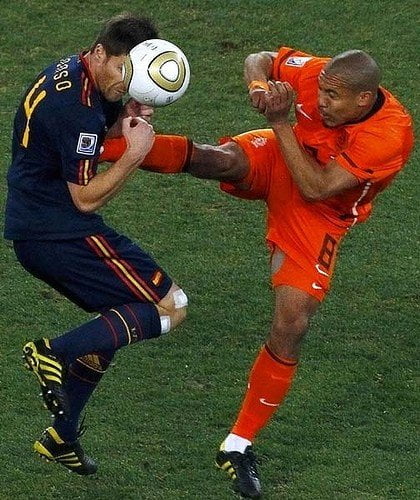A lot has already been said about the allegedly “proposed” Media Appeals Tribunal (MAT) and the despicable Protection of Information Bill (PIB), not least in that post last week on here.
And so it continues with Gareth Ackerman, chairman of local retail giant Pick n Pay weighing in with his opinion:
Pick n Pay recognises there is a close link between economic and political freedom. The economic freedom on which business depends flourishes best when citizens are able to rely on an unfettered flow of information that is free from excessive government control and regulation.
And since so far, 99% of the criticism of these proposals has come solely from “the media”, creating an “us versus them” scenario, they leapt upon his words with gay abandon, obviously delighted to have an ally outside their close-knit ranks and quoting his ever so luscious soundbites one after another.
In the Times:
The business sector should not believe itself exempt from this duty of responsible citizenship, and we thus have no hesitation in adding our voices to those who have expressed their misgivings about the consequences of the governing party’s proposals.
And with cautious optimism in the Daily Maverick:
“Any erosion of our open society, now that we have achieved it, will only impede economic growth and national prosperity,” he said.
In airing these views… Ackerman may have opened the door for others of a similar persuasion to do the same, which may finally move the debate beyond an increasingly acrimonious to-and-fro between the ANC and political bodies on the one hand, and the media itself on the other… Ackerman has effectively called on the business community to stand up and be counted.
Of course, these words come from the same company that recently banned certain newspapers from its shelves, which had at least one columnist from er… The Daily Maverick up in arms:
After a couple of pesky complaints about “nudity” and bad language in the Afrikaans newspapers, Sondag and Die Son, Pick ’n Pay decided to no longer carry these papers on its shelves. This was despite the fact that the Sunday weekly is sold in supermarkets in sealed plastic bags.
Speaking to the Saturday Star, Ingo Capraro, Sondag’s editor, said the decision was disturbing: “The constitution enshrines freedom of choice, freedom of association and media freedom. Pick ’n Pay’s decision to decide on behalf of its customer what they are allowed to read flies directly in the face of freedom of choice.”Pick ’n Pay appears to have taken the decision unilaterally, without any consultations with media or civic or watchdog organisations. The company acted as judge, jury and executioner… this would be a very bad time for Pick ’n Pay to start playing media censor.
Local tabloid the Daily Voice was also withdrawn from sale , although apparently it is now available “in selected Pick n Pay stores”. So presumably T&A are not ubiquitously offensive. I’m not sure how one would go about deciding exactly which stores would have open-minded enough shoppers allow sale of such publications, but I’d be willing to be surveyed if it involved commenting on a series of pictures.
And yes, this is entirely different from “freedom of the press”, but then as Gareth has told us, all these freedoms – media, press, freedom of expression, political freedom, economic freedom, freedom of choice – are interlinked. Right?
But then, this isn’t the first time that PnP have made unilateral decisions and statements over the freedom of expression. Who could forget the whole 2009 “blasphemous” (or “unneccessarily offensive” as I thought), SAX Appeal magazine debacle, when PnP pulled the magazine off the shelves after receiving “several complaints”:
Pick n Pay spokesperson Tamra Veley said that “students putting the magazine together should be extra careful while documenting, reporting and cartooning their work to avoid blatant disrespect of any faith, culture and race. We therefore made the decision to remove Sax Appeal from sale in Pick n Pay stores.”
But Freedom of Expression Institute executive director, Jane Duncan, said last night that blasphemy was no longer a recognised ground for restriction of publications: “So arguments to restrict the publication on this basis do not hold water”.
Look, I’m not stupid (no, really, I’m not). I recognise that Pick n Pay is a business and a business needs customers to keep going. And to keep the customers spending money, you must keep the customers happy. That’s obviously why they chose not to sell those newspapers and to withdraw the SAX Appeal magazine from sale. And yes, Ivo Vegter is correct in his assertion that one must:
…distinguish between the legal right to publish, and the right to sell what you want.
But I fail to see how the media can suddenly flip-flop and conveniently accept the support of Gareth Ackerman and Pick n Pay in their vigorous campaign against the MAT and PIB. It seems hugely hypocritical to me and has a more than faint smell of desperation about it: it seems that when you’re struggling, you’ll accept help from any quarter – even one that has blatantly stood against the same principles you’re fighting for on several occasions previously.
To me, that devalues your message, your campaign and with it, your chances of success.

